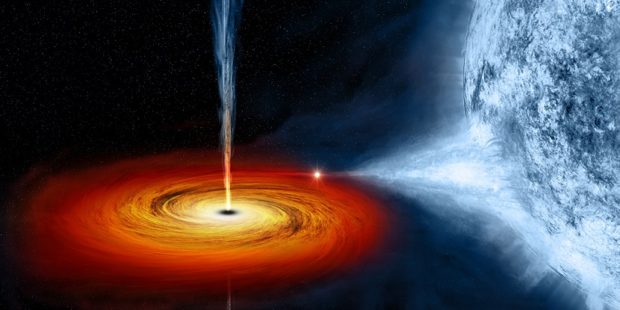
Israeli Scientist Proving Hawking’s Black Hole Theory

In groundbreaking new research published this week in one of the world’s top science journals, an Israeli physicist may have proved one of Stephen Hawking’s most important predictions about black holes, successfully demonstrating that the mysterious celestial bodies are slowly evaporating.
Professor Jeff Steinhauer of the Technion-Israel Institute of Technology Physics has taken a small step and a giant leap toward verifying the “Hawking Radiation” theory, which challenges the conventional understanding that nothing can escape a black hole, according to the study, published in Nature Physics.
The theory, first proposed by Hawking in 1974, suggests that subatomic light particles are sometimes ejected back out of a black hole, taking with them tiny amounts of energy, resulting in a gradual decrease in its mass over time until it evaporates completely.
But more than 40 years later, no one had been able to prove the theory, mainly because light particles from black holes are too small to be detected from Earth

Steinhauer and his team of researchers were last year able to recreate conditions similar to those of a black hole in a lab, using sound waves in order to study how subatomic particles behave on its edge, known as an event horizon.
In his new paper Steinhauer explains that he simulated a black hole event horizon by cooling helium to just above absolute zero (-273.15°C or -59.67°F), and then heating it rapidly to create a barrier impenetrable to sound waves, similar to light from a black hole.
During the experiment, Steinhauer found that tiny particles of energy that formed sound waves did escape his simulated black hole, as Hawking predicted.
“This confirms Hawking’s prediction regarding black hole thermodynamics,” Steinhauer wrote in the introduction to his paper.
The findings were first published in April on the arXiv.org physics site. In order to published in Nature Physics, the research first had to undergo intense peer review, with experts checking if Steinhauer’s observations could be attributed to something else, such as tiny vibrations caused by flaws in the experiment’s design.
According to numerous reports, Steinhauer’s observations on the ground-breaking theory could win Hawking his first Nobel Prize.
Ironically, Hawking supports the academic boycott of Israel, and in 2013 canceled his participation in a Jerusalem conference organized by then-president Shimon Peres


